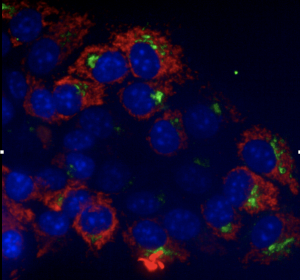The overarching goal of the Hopkins laboratory is to elucidate the molecular mechanisms that underpin treatment efficacy. We focus on the use of patient derived models of cancer to identify the effects of patient specific factors upon oncogenic signaling and treatment efficacy. With the advent of high throughput sequencing it is now possible to identify the genetic events that give rise to and sustain each individual tumor, however our capacity to translate this information into effective clinical care remains limited. This gap in our capacity stems from a lack of clinically relevant models that would allow us to accurately compare the impact of multiple therapeutic strategies and relate them to clinical responses. Our functional genomics pipeline (FGP) integrates functional testing of high-fidelity patient derived models with comprehensive genomics and clinical data to find novel and druggable targets, redefinethe standard of patient diagnoses, and drastically improve patient outcomes. Additionally, the Hopkins lab seeks to develop new functional genomics workflows and collaborations to improve our capacity to identify effective therapeutic options for patients in need.

Our research group focuses on mechanistic and modeling efforts that stem from the precision medicine pipeline described in the 2017 work by Pauli et. al., and are exemplified by our efforts to understand how systemic factors contribute therapeutic response as described in the 2018 work by Hopkins et. al. New members will have the opportunity to use our FGP, single cell and whole exome data, and samples from our clinical collaborations to explore novel ways to impact patient treatment.
